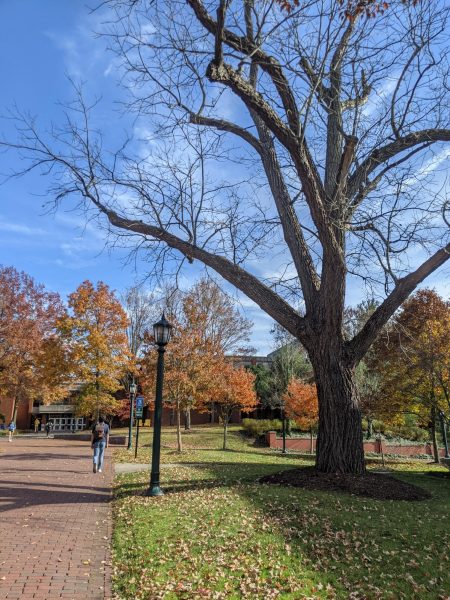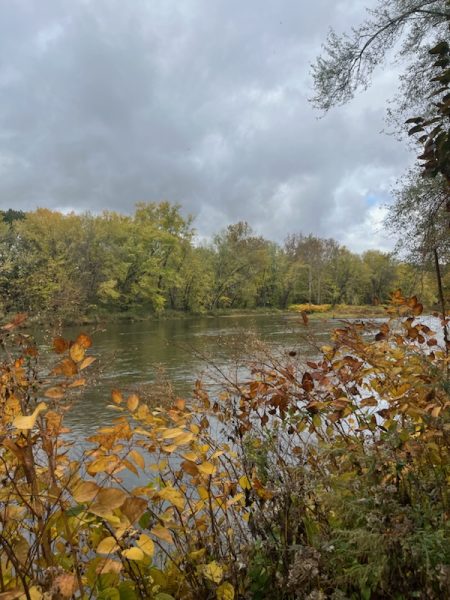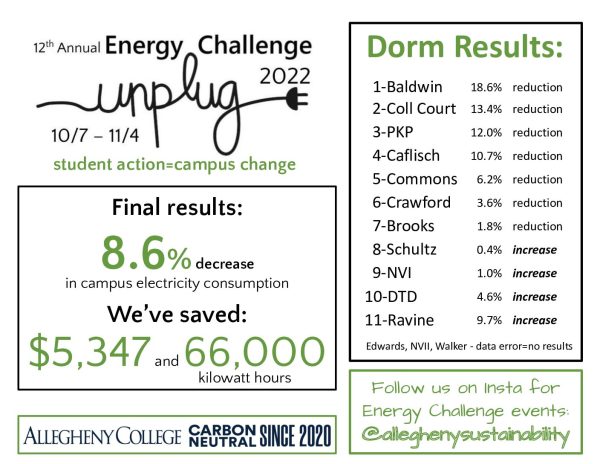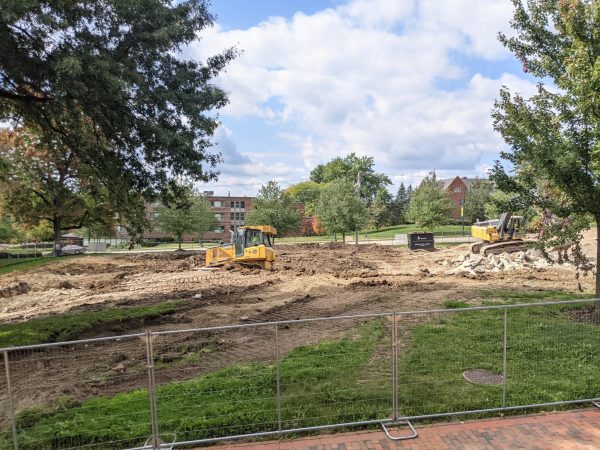The precipice of disaster
How conservative politics fueled the destruction of Brazil’s Amazon Rainforest
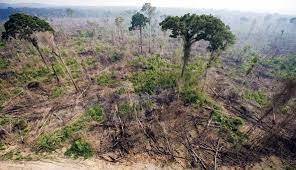
The world’s largest rainforest, now reduced to 83% of tis original stature.
If a tree falls in a forest and no one is around to hear it, does it make a sound? If an entire soccer field filled with trees fell down every minute, would anyone notice?
The Amazon rainforest is currently experiencing its highest rates of deforestation ever, losing approximately 150 acres of land every minute, according to the BBC. The rainforest is teetering on a dangerous tipping point that, if crossed, could cause cascading, far-reaching effects across the world.
Brazil’s new president Luiz Inácio Lula da Silva — commonly known as Lula — ran on a strong environmentalist platform that included prioritizing the conservation and protection of the Amazon Rainforest. Elected into office in January 2023, it remains to be seen whether or not he will be able to implement his policies.
“It’s a pretty big moment just in the sense (of) what the Amazon represents to the global — I mean to the entire planet honestly,” said Assistant Professor of Environmental Science and Sustainability Matthew Bethurem, who teaches environmental policy. “There’s nothing else like it.”
The Amazon rainforest is one of the most biodiverse places on the planet, with some estimates calling it home to 10% of all known wildlife species, according to the World Wildlife Fund. The forest serves as a critical climate change-combatting carbon sink, and it supports food and water systems for millions of people. The Amazon rainforest is so large that it can affect weather patterns millions of miles away, including rainfall levels in the middle of the continental U.S., which means that continued deforestation could threaten food production and destabilize ecosystems all over the world.
Former Brazilian President Jair Bolsonaro was a staunch anti-environmentalist conservative who publicly and constantly derided the idea of environmentalism, according to Professor of Political Science and Latin American specialist Shannan Mattiace.
“Not only did he not seem at all abashed by the deforestation — he himself was questioning the very idea that one, international environmentalists could even say anything about Brazil,” Mattiace said. “And Bolsonaro always took a super-nationalist take on the environment. ‘This is our rainforest. This is our Amazon. Who are you all from outside to tell us what to do?’”
During Bolsonaro’s years in office, deforestation increased by 52% compared to the prior three years, and more than 8.4 million acres — an area larger than the entire nation of Belgium — was lost, according to Vox. Now, the National Oceanic and Atmospheric Administration says that some parts of the forest are releasing more carbon than they are absorbing.
In prioritizing the conservation of the Amazon, Lula is going up against the Brazilian agricultural industry, which has immense political lobbying power. The agricultural industry is a major driver of deforestation, with some experts estimating that 90% of deforestation in the Amazon rainforest is caused by illegal land grabs in order to cattle ranch, according to Vox. During his presidency from 2019 to 2022, Bolsonaro turned a blind eye to the illegal land grabs because they created jobs and brought in revenue for Brazil.
“If Lula wants to get to the bottom of things — which I would imagine you’d have to deal with illegal logging and mining and other issues related to that — you have got to send the law after them,” Mattiace said. “You have to increase the presence of the state in that region. You have to prosecute them to the fullest extent of the law. You just have to decide, ‘We are going to use the power of the state.’ And you’re going to expend capital, both actual money and putting people out there — but also political capital because you’re going to get backlash.”
On top of having to address such a complex issue, Lula is also working with a majority-conservative National Congress that still supports Bolsonaro’s political platform. Even if Brazil’s legislature did decide to pass Lula’s conservation policies, it is possible that provincial leaders or law enforcement officers will choose to not enforce them as an act of political rebellion or because they are bribed.
“It remains to be seen how much power (Lula is) going to be able to actually wield,” Bethurem said. “How is he going to be able to facilitate some agreements and consensus among those people who are in essence politically opposed to him? That might actually be the thing that really tells the tale on how much of his agenda can even be rolled out.”
One of Bolsonaro’s main arguments for preventing the conservation of the Amazon was that resource extraction from the forest is essential to Brazil’s economic development. However, Bethurem said that while Brazil’s gross domestic product has increased, it is still unequally distributed.
“There are a hell of a lot of Indigenous people and just poor people living in favelas (a Brazilian term for a slum or ghetto) in Rio that don’t benefit at all from that economic growth that’s coming out of that,” Bethurem said.
While Bethurem disagreed with the idea that there is a tradeoff between overall economic well-being and environmental protection, he did note that economic development needs to be environmentally sustainable.
“What you often can’t have is a handful of monopolistic companies controlling an entire sector that continue to be ultra-profitable and still have environmental protection because often their profits come at the expense of both the landscape and the people who live there,” Bethurem said. “And that’s probably what Lula’s big challenge is going to be. Can he push back hard enough against those really entrenched, wealthy, powerful industries and figures to make some meaningful changes to halt what’s been going on? The problem is, he’s got a pretty short time period to do that in. There’s already a big chunk of the Amazon that’s really in a tipping point kind of territory. If you lose much more of it, it’s going to change into a different kind of ecosystem and then you’re probably not going to be able to bring that back in any kind of decent timeline.”
Lula is an “infamous compromiser,” according to Mattiace. She believes that Lula’s decades of experience governing and ability to cut deals with multiple stakeholders will serve him well. While the large-scale conservation effort would be expensive, Mattaice said the nation could find the money to fund the initiative.
“In the same way that — does Russia have money to wage a war? No, but they are,” Mattiace said. “Similarly, Brazil — do they have money to basically do a whole range of ambitious things? Well, no, but they can. They can go out on the market. They can get loans. They can increase the tax rate. They can do things. It is a state that can function and does function.”
Lula faces many potential roadblocks in his efforts to conserve the Amazon rainforest. If he fails to build consensus and enact conservation policies, the continued degradation of the forest could have far-reaching global impacts. It is currently unclear if Lula will succeed.
“I think it’s kind of one of those things that’s a little too early to tell if it’s going to be successful or if we’ll just kind of get a maintaining of the status quo,” Bethurem said.
Regardless, Lula appears to be motivated to implement his environmentalist policies.
“I think the environment is going to be high on his agenda, so I don’t see a reason why he wouldn’t focus,” Mattiace said. “The world’s eyes are on him.”

Anna Westbrook is a sophomore from Washington, D.C. They are majoring in Environmental Science and Sustainability with a double minor in Political Science...





